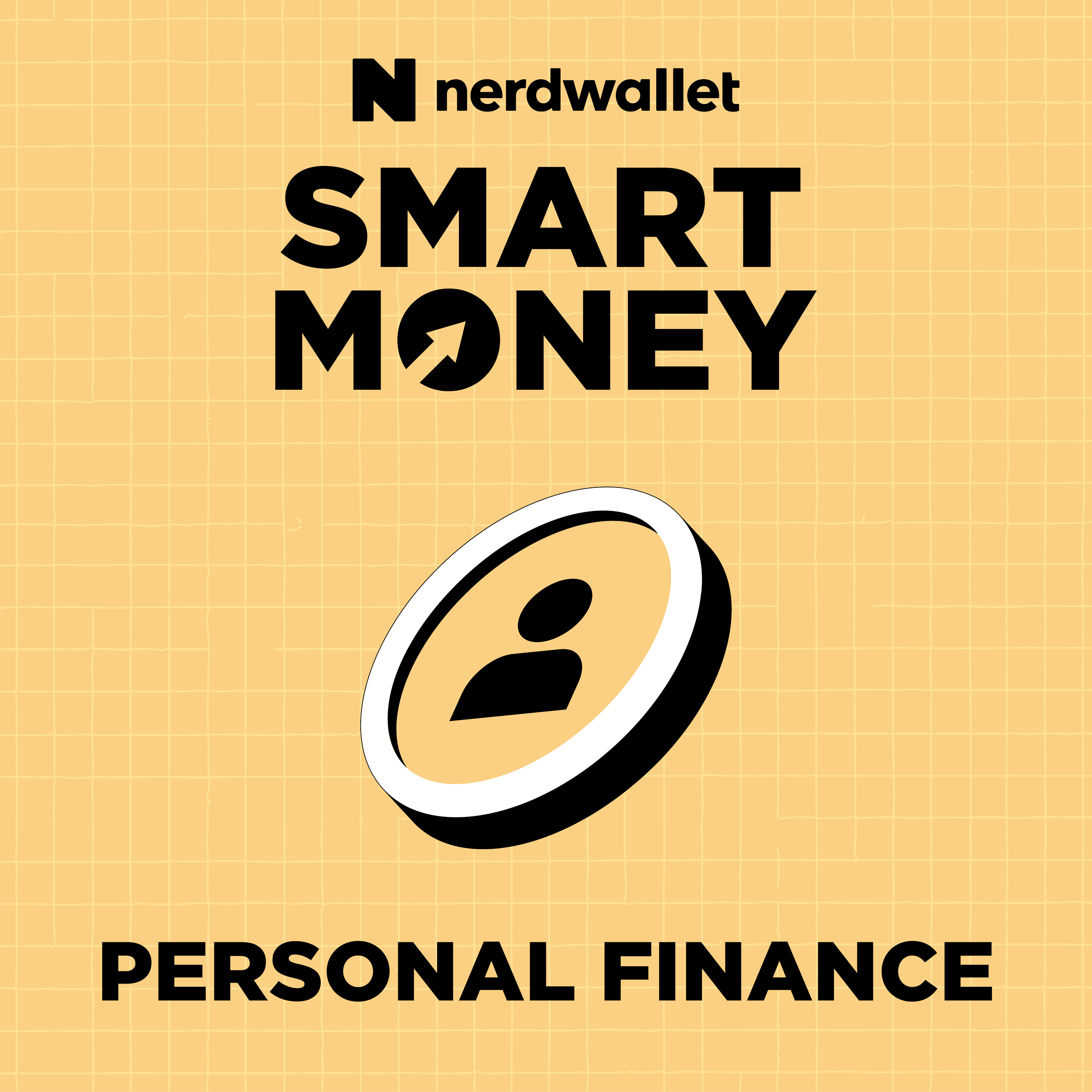Budget Rehab: What Our Hosts’ Spending Reveals About Smarter Money Moves (Video Episode)
In this special video episode, Sean and Elizabeth give each other a “budget rehab,” revealing their own budgets to help you fix yours.
How can you feel more in control of your spending? How can you plan for irregular expenses like credit card annual fees or surprise bills? In this video episode, hosts Sean Pyles and Elizabeth Ayoola give each other a “budget rehab” to reveal how they really manage their money — and how you can apply the same strategies to your own finances. But first, they’re joined by NerdWallet senior writer Anna Helhoski to discuss new NerdWallet survey findings about money stress and what steps you can take to alleviate it. They discuss why money stress hits some groups harder than others and share practical tips for easing the pressure.
Then, Sean and Elizabeth present a personal “Budget Rehab” segment where they analyze each other’s real numbers while sitting eye to eye at NerdWallet HQ. Sean shares how he balances rental income, savings, and splurges, while Elizabeth maps her freelance income, high savings rate, and family priorities. Together, they highlight the pros and cons of tactics like setting up multiple savings buckets, trimming recurring costs, maxing out tax-advantaged accounts, and planning ahead for annual fees and surprise expenses.
Smart Money is a finalist for TWO Signal Awards! Please take a moment to vote for us here:
https://vote.signalaward.com/PublicVoting#/2025/individual-episodes/genre/money-finance
https://vote.signalaward.com/PublicVoting#/2025/shows/genre/money-finance
Want the cheapest prepaid phone plan that still fits your phone service needs? Read NerdWallet’s article on the best cheap cell phone plans: https://www.nerdwallet.com/p/best/finance/cheap-cell-phone-plans
Want us to review your budget? Fill out this form — completely anonymously if you want — and we might feature your budget in a future segment! https://docs.google.com/forms/d/e/1FAIpQLScK53yAufsc4v5UpghhVfxtk2MoyooHzlSIRBnRxUPl3hKBig/viewform?usp=header
In their conversation, the Nerds discuss: money anxiety, reduce financial stress, generational money differences, Gen Z money habits, Millennial money habits, Gen X finances, Baby Boomer finances, grocery inflation, high food prices, emergency savings, build emergency cushion, debt payoff strategies, debt snowball vs avalanche, credit card debt payoff, homeownership vs renting, housing costs, mortgage vs rent, rental affordability, HSA benefits, high-deductible health plan, maxing out 401k, brokerage account investing, saving for car replacement, sinking fund examples, subscription audit tips, lower utility bills, cheaper phone plan, cutting cell phone costs, donating to charity, values-based spending, overspending triggers, budget burnout, financial literacy gaps, improve financial confidence, setting financial goals, FIRE movement, early retirement savings, family budgeting, and teaching kids about money.
To send the Nerds your money questions, call or text the Nerd hotline at 901-730-6373 or email podcast@nerdwallet.com.
Like what you hear? Please leave us a review and tell a friend.
Learn more about your ad choices. Visit megaphone.fm/adchoices
How can you feel more in control of your spending? How can you plan for irregular expenses like credit card annual fees or surprise bills? In this video episode, hosts Sean Pyles and Elizabeth Ayoola give each other a “budget rehab” to reveal how they really manage their money — and how you can apply the same strategies to your own finances. But first, they’re joined by NerdWallet senior writer Anna Helhoski to discuss new NerdWallet survey findings about money stress and what steps you can take to alleviate it. They discuss why money stress hits some groups harder than others and share practical tips for easing the pressure.
Then, Sean and Elizabeth present a personal “Budget Rehab” segment where they analyze each other’s real numbers while sitting eye to eye at NerdWallet HQ. Sean shares how he balances rental income, savings, and splurges, while Elizabeth maps her freelance income, high savings rate, and family priorities. Together, they highlight the pros and cons of tactics like setting up multiple savings buckets, trimming recurring costs, maxing out tax-advantaged accounts, and planning ahead for annual fees and surprise expenses.
Smart Money is a finalist for TWO Signal Awards! Please take a moment to vote for us here:
https://vote.signalaward.com/PublicVoting#/2025/individual-episodes/genre/money-finance
https://vote.signalaward.com/PublicVoting#/2025/shows/genre/money-finance
Want the cheapest prepaid phone plan that still fits your phone service needs? Read NerdWallet’s article on the best cheap cell phone plans: https://www.nerdwallet.com/p/best/finance/cheap-cell-phone-plans
Want us to review your budget? Fill out this form — completely anonymously if you want — and we might feature your budget in a future segment! https://docs.google.com/forms/d/e/1FAIpQLScK53yAufsc4v5UpghhVfxtk2MoyooHzlSIRBnRxUPl3hKBig/viewform?usp=header
In their conversation, the Nerds discuss: money anxiety, reduce financial stress, generational money differences, Gen Z money habits, Millennial money habits, Gen X finances, Baby Boomer finances, grocery inflation, high food prices, emergency savings, build emergency cushion, debt payoff strategies, debt snowball vs avalanche, credit card debt payoff, homeownership vs renting, housing costs, mortgage vs rent, rental affordability, HSA benefits, high-deductible health plan, maxing out 401k, brokerage account investing, saving for car replacement, sinking fund examples, subscription audit tips, lower utility bills, cheaper phone plan, cutting cell phone costs, donating to charity, values-based spending, overspending triggers, budget burnout, financial literacy gaps, improve financial confidence, setting financial goals, FIRE movement, early retirement savings, family budgeting, and teaching kids about money.
To send the Nerds your money questions, call or text the Nerd hotline at 901-730-6373 or email podcast@nerdwallet.com.
Like what you hear? Please leave us a review and tell a friend.
Learn more about your ad choices. Visit megaphone.fm/adchoices
Press play and read along
Transcript
Transcript is processing—check back soon.
NerdWallet's Smart Money Podcast — Budget Rehab: What Our Hosts’ Spending Reveals About Smarter Money Moves (Video Episode)





